We first encountered Dougald Hine about a year ago through the wide mycelium-like network of Ivan Illich fans—and we were glad we did. His new book was just out and we heard he was doing a book tour of the U.S. quite a few years after his first visit here. Our meetup in D.C. for Dougald a few weeks ago was a rich and delightful occasion — a time when we learned what T.S. Eliot might have meant when he wrote: “wait without hope, for hope would be hope for the wrong thing.”
One of the U.K.’s most influential voices in the climate debate, Dougald is the co-founder (with Paul Kingsnorth) of the Dark Mountain Project (an effort to “walk away from the stories that our societies like to tell themselves, the stories that prevent us seeing clearly the extent of the ecological, social and cultural unravelling that is now underway”) and the founder of the School of Everything (a startup inspired “by Ivan Illich’s Deschooling Society and the educational experiments of the 1960s”). His early career included a stint working for the BBC. He lives today in a small town in central Sweden where he and his partner, Anna Bjorkman, are creating “a school called HOME”—“a gathering place and a learning community for those who are drawn to the work of regrowing a living culture”. He has worked with the Riksteatern, Sweden’s national theatre, and is an associate of the Center for Environment and Development Studies at Uppsala University.
His ideas, as he explains in the book and in our conversation, come out of the question he asked himself some years ago: what if our ways of talking about climate change (and the world in general)—in technocratic terms and with an overreliance on a scientific lens—is making everything worse.
In a time of despair, Dougald suggests, we can talk about how we might take up (or continue) the work that is worth doing in the ruins. This work means: (1) salvaging the good that may be taken with us, (2) mourning the good that cannot be taken with us, (3) discerning those things that were never as good as we told ourselves they were, and (4) looking for the dropped threads—the lost moments earlier in the story that might have something to tell us now.
Timestamps:
Introducing Dougald and two of his provocative claims: "The end of the world as we know it is not the end of the world" and "The end of the world as we know it is also the end of a way of knowing the world."
3:00 Dougald discusses his experiences at Oxford, describing them as "one half of a shamanic initiation" where students' existing knowledge was deconstructed without guidance on reconstruction.
6:00 Dougald’s time at BBC as a radio journalist, describing news as an "extractive industry" mining people's painful experiences
8:00 We talk about the origins of the Dark Mountain Project, co-founded with Paul Kingsnorth in 2009, emerging from their shared critiques of environmental journalism and activism
17:30 Dark Mountain as a "journey to the far side of despair" and its role in providing space for people whose existing stories no longer made sense
21:00 Exploration of how Dark Mountain connected to decolonial thinking and theological perspectives on "uncivilization"
34:30 The experience of joining Ivan Illich's circle of collaborators five years after his death — and the hospitable tradition of keeping an extra seat at the table for strangers
43:30 Illich's Jewish background and its influence on his thinking about modernity and Christianity.
52:30 Dougald talks about his recent book tour in North America, including observations on America's "lost literacy of lament".
57:00 Experiences at Sand River Community Farm and the gift economy vs. modern economic frameworks
Further Reading:
At Work in the Ruins, Dougald Hine
Hospicing Modernity: Facing Humanity's Wrongs and the Implications for Social Activism, Vanessa Machada de Oliveira
In the Vineyard of the Text, Ivan Illich
The Remains of the Day, Kazuo Ishiguro
First Reformed, Paul Shrader
Soil and Soul, Alistair McIntosh
The Gift, Lewis Hyde
Spell of the Sensuous, David Abram
Rivers North of the Future, David Cayley
Dominion: How the Christian Revolution Remade the World, Tom Holland
Gender, Ivan Illich


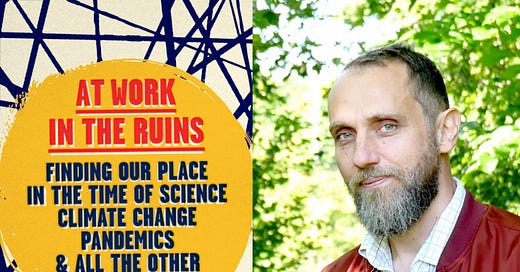
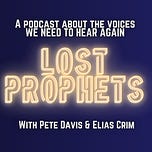







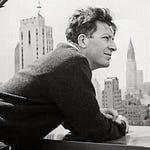

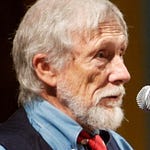
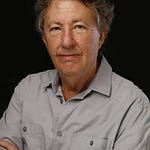
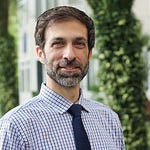
Share this post